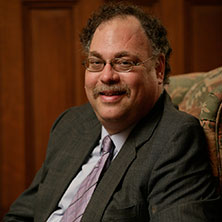
Rabbi Alan Brill , Ph.D.
Cooperman/Ross Endowed Chair for Jewish-Christian Studies; Director of Graduate Studies;
Professor
Department of Religion
(973) 761-9463
Email
Fahy Hall
Room 244
Rabbi Alan Brill, Ph.D.
Cooperman/Ross Endowed Chair for Jewish-Christian Studies; Director of Graduate Studies;
Professor
Department of Religion

